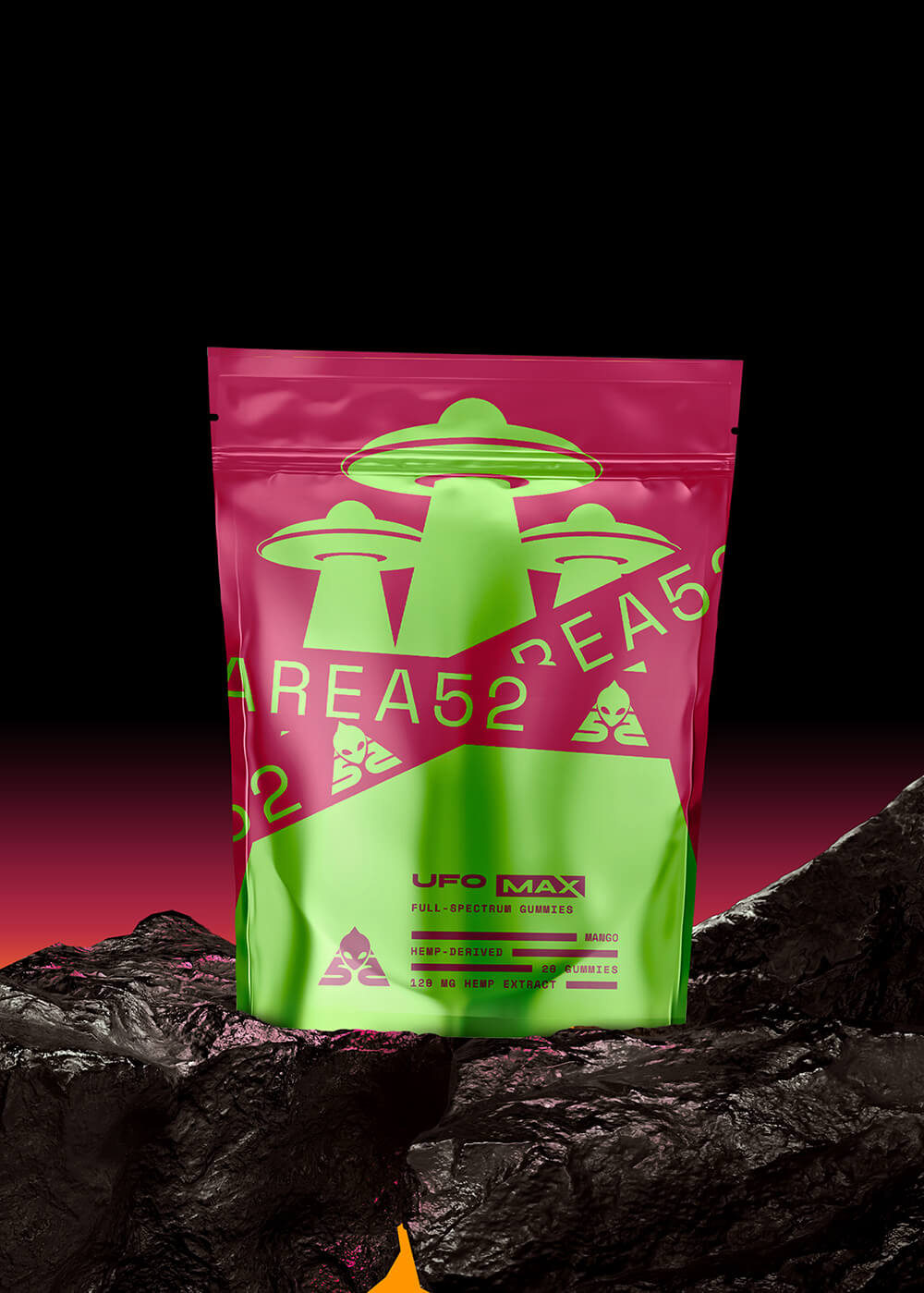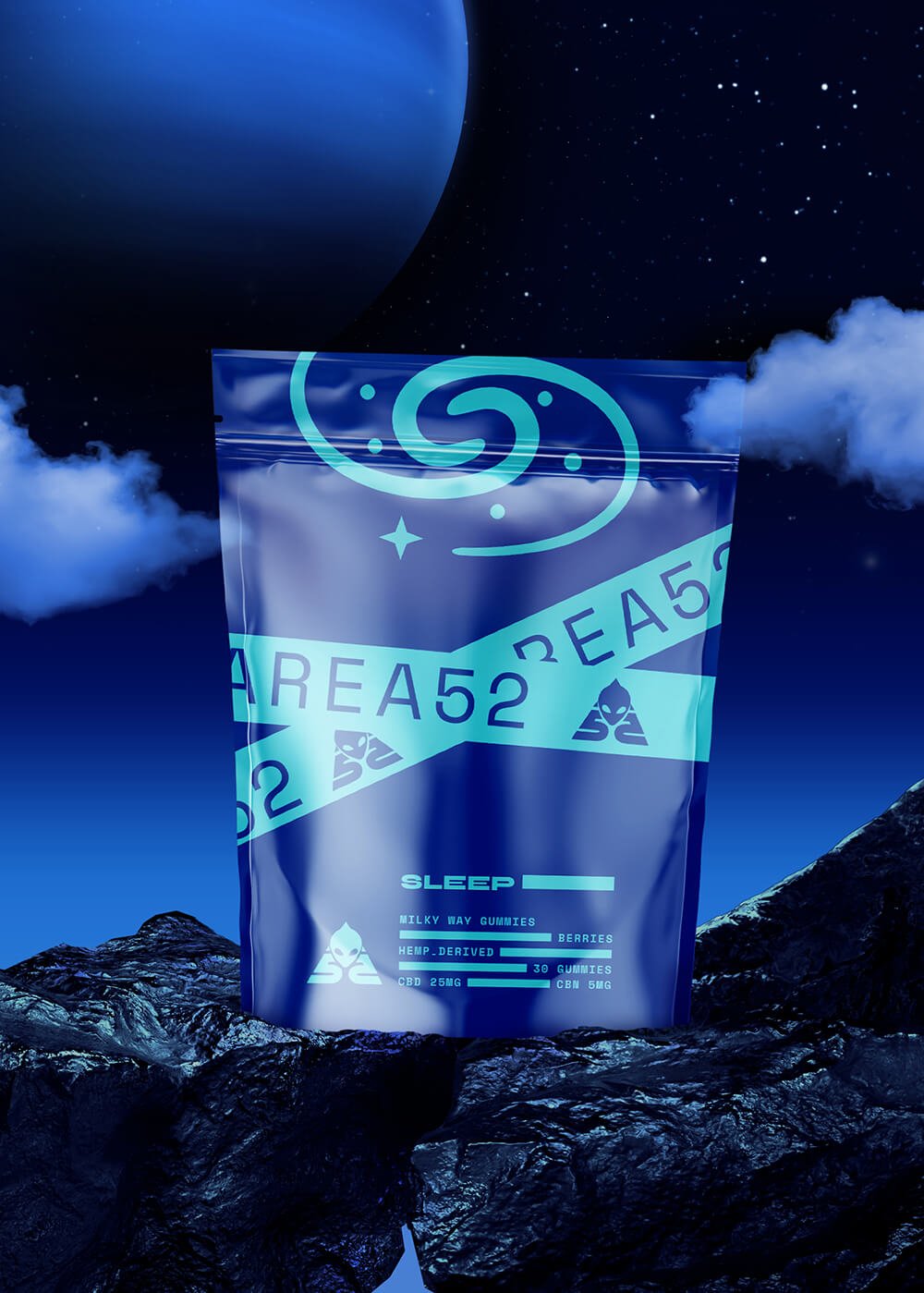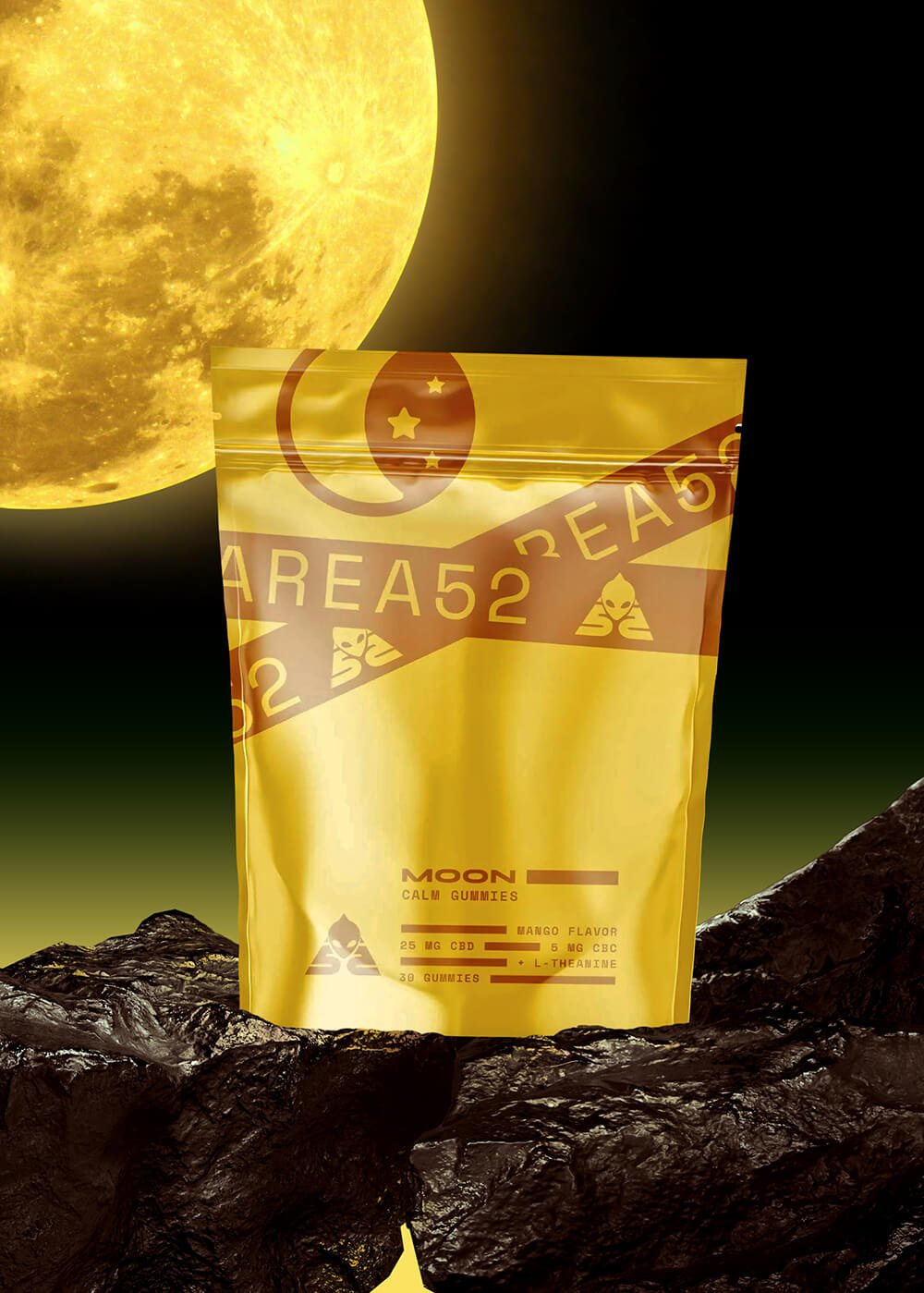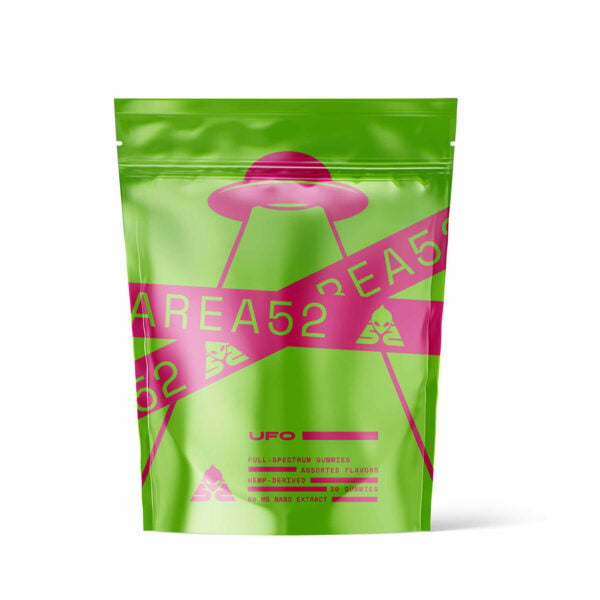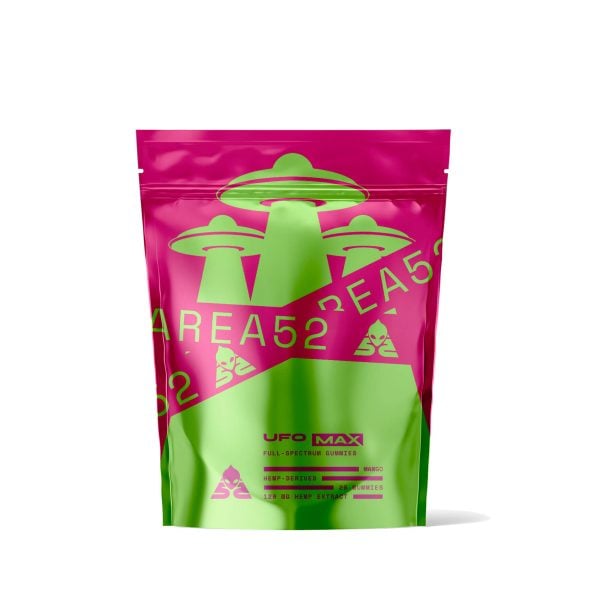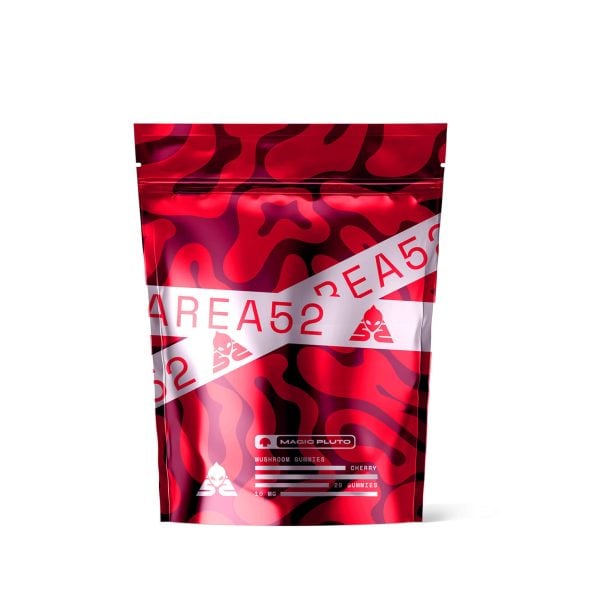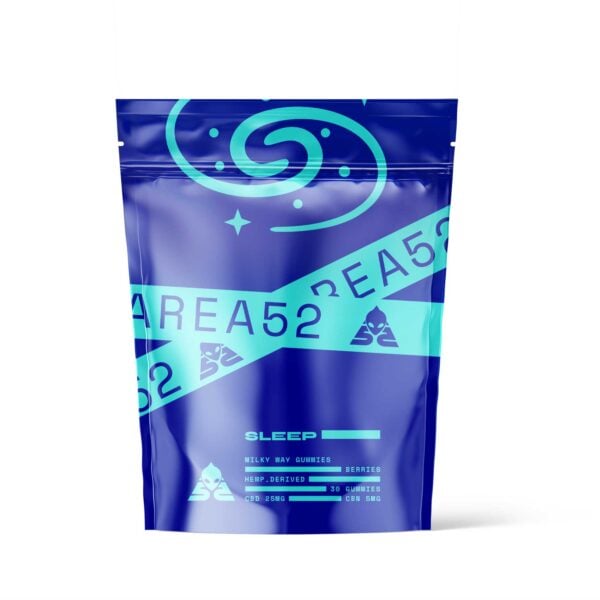Hemp vs. Marijuana: What Are the Differences Between These Cannabis Plants?
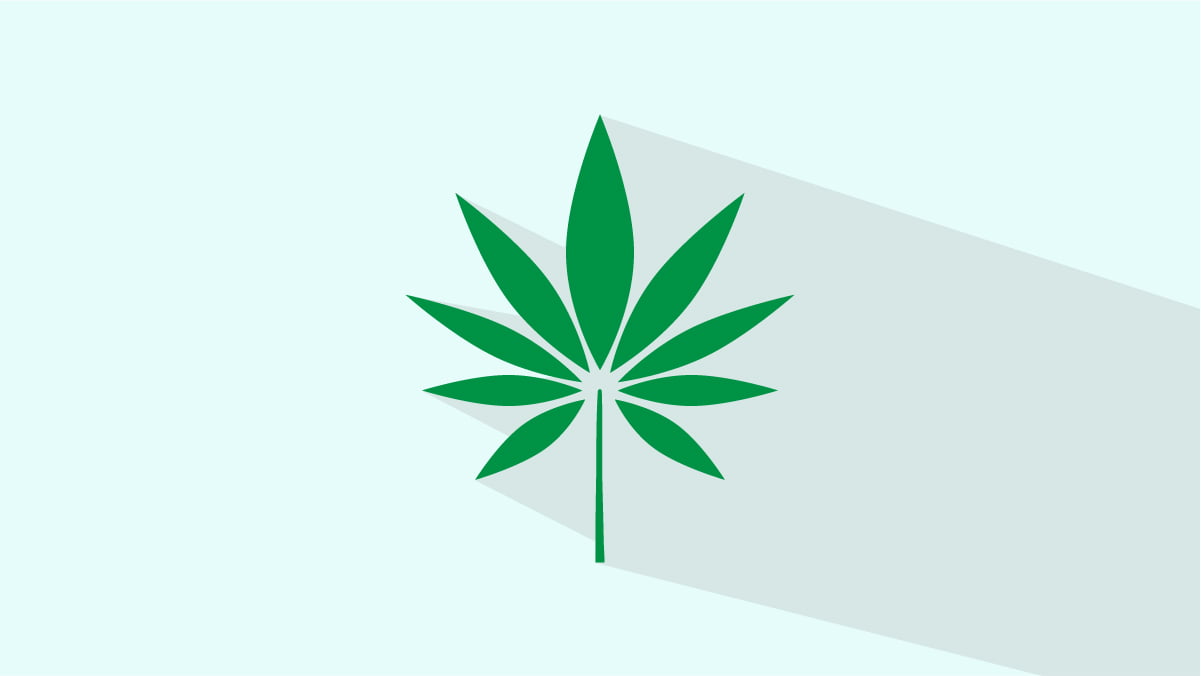
Delta 8 THC can be derived from both hemp and marijuana. Despite being the same compound, delta 8 is federally illegal if it’s made from marijuana and federally legal if derived from hemp.
So what exactly makes hemp and marijuana different? Why is one legal and the other illegal?
To summarize the main differences in one line — hemp and marijuana are the same species (Cannabis sativa), but one (hemp) produces virtually less THC (and should have no more than 0.3% THC or less for it to be legal), the other (marijuana) makes a lot of it.
Is Hemp the Same as Marijuana?
There is a family of plants called Cannabaceae. From there, we have the Cannabis genus, which further breaks down into species, such as Cannabis sativa and Cannabis indica.
Marijuana is a variety of Cannabis sativa L. or a related species by the name of Cannabis indica. These cannabis plants are typically grown for their flowers. It contains high concentrations of THC with low-to-moderate levels of CBD. Marijuana is the plant that gets you high.
There is some confusion sometimes when talking about hemp and cannabis. The hemp plant is also a type of Cannabis sativa — but there are no Cannabis indica strains that legally classify as industrial hemp. Hemp plants are grown for industrial purposes, food, and cannabis-derived products and health supplements. Farmers will harvest the hemp seeds to make hemp seed oil (CBD oil), the flowers for hemp-derived CBD production, and the stalks and stems for their strong fiber to make textiles. Some companies even grow hemp to make biodiesel.
The only difference between hemp and marijuana is the amount of THC each plant makes. Both plants have the same genes but will express these genes a little bit differently. Hemp plants don’t express the genes that convert CBG to THC — and instead, focus on converting CBG to CBD.
Marijuana does express the genes that code for THC production. The legal definition of hemp and marijuana primarily depends on THC levels. Any plant with more than 0.3% THC by dry weight is considered marijuana, while anything with 0.3% or less THC is classified as industrial hemp.
The Differences Between Hemp vs. Marijuana in A Nutshell
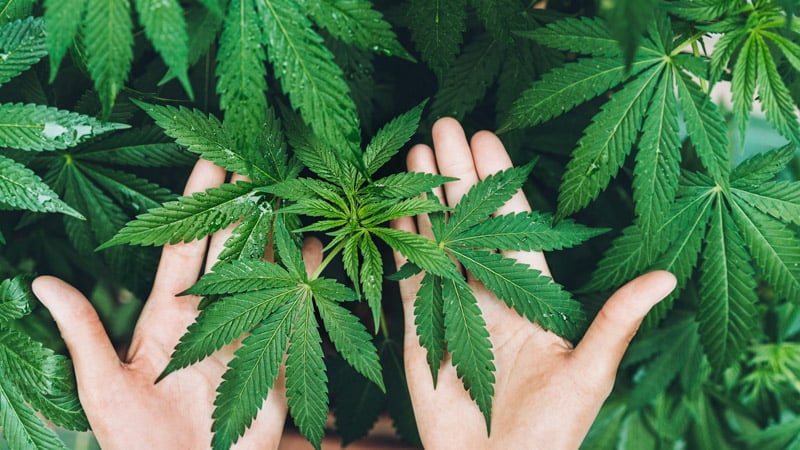 Below we highlight the main differences between hemp vs. marijuana:
Below we highlight the main differences between hemp vs. marijuana:
| Hemp | Marijuana | |
| Chemical composition | High CBD / Low THC | High THC / Low-High CBD |
| Does it get you high? | No | Yes |
| Is it legal? | Federally Legal | Federally Illegal (legalized in 17 states) |
| How is it used? | Food, clothing, paper, construction materials, biofuel, CBD products, cannabis-derived products, health supplements, skincare products | Recreational and medical marijuana products |
What is Marijuana?
Marijuana is a cannabis plant species abundant in various strains. It has been cultivated for thousands of years by nearly every civilization in the world. Its use dates as far back as ancient China.
Marijuana contains hundreds of natural chemicals; over 100 compounds have been identified as THC, CBD, CBC, CBG, CBN, and other cannabinoids.
The most abundant cannabinoid in THC is marijuana. Its content ranges between 5–30%, with low amounts of CBD. Some selectively bred strains contain higher amounts of CBD and lower THC ratios.
THC is what causes marijuana to induce intoxication. This is what gets you high when you smoke, vape, or eat cannabis-derived products.
When THC degrades over time, it converts into CBN, and only a small percentage is transformed to its more stable version, delta 8 THC.
Marijuana is illegal on a federal level, but individual states can regulate them within their jurisdictions. So far, 17 states have legalized marijuana for recreational use, and many states have a medical marijuana program for patients.
The Legal Status of Marijuana
Despite recent changes in the drug policies of the United Nations — marijuana has been taken off the most restrictive schedule of controlled substances — weed remains federally illegal. Any activity connected to marijuana, be it possession, cultivation, sale, or transportation, is prohibited by federal law.
That being said, individual states have the right to create state laws that regulate marijuana within their territories. In addition, 17 states have legalized recreational marijuana, with more planning to hop on the bandwagon soon.
It seems that federal decriminalization is here to come sooner than later, but until that happens, always make sure to check with the local marijuana laws when traveling between states.
What is Hemp?
The hemp plant is the non-intoxicating version of Cannabis sativa L. While marijuana can be found in both indica and sativa strains, hemp is a subspecies of the Cannabis sativa species.
Unlike marijuana, hemp contains only a trace amount of THC, but for it to be considered legal, it must contain less than 0.3% THC.
Hemp is more abundant in CBD, which is why it has become the go-to source for CBD oil production.
Not only that but hemp can also be used to extract delta 8 THC. Once CBD has been extracted and turned into a distillate or isolate, it is converted into delta 9 THC, and then extractors synthesize delta 8 from it.
The Legal Status of Hemp
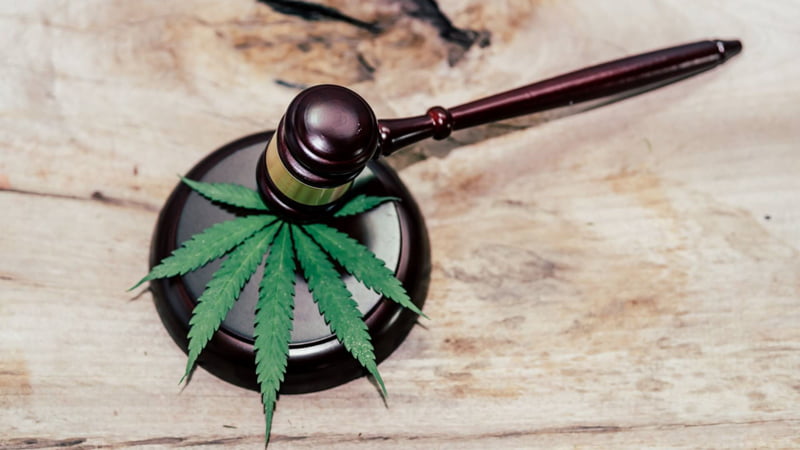 The federal government legalized industrial hemp under the 2018 Farm Bill. The new law removed it from the list of controlled substances. Since then, hemp has become an agricultural commodity; it can be grown for any use, including food, clothing, paper, biofuel, construction materials, and health supplements like CBD oil or recreational products such as delta 8 THC.
The federal government legalized industrial hemp under the 2018 Farm Bill. The new law removed it from the list of controlled substances. Since then, hemp has become an agricultural commodity; it can be grown for any use, including food, clothing, paper, biofuel, construction materials, and health supplements like CBD oil or recreational products such as delta 8 THC.
The 2018 Farm Bill states that hemp and all its derivatives are legal on a federal level. This means that delta 8 THC is also legal as long as it comes from hemp. That’s because hemp plants contain less than 0.3% of delta 9 THC.
The DEA has recently raised an argument that all synthetically derived “tetrahydrocannabinol” is federally illegal. However, current extraction methods are anything but synthetic because they use organic matter and naturally occurring chemicals.
So, long story short, hemp-derived delta 8 THC remains in a legal grey area and FDA regulations remain unclear on cannabis-derived products.
So far, 17 states have banned its sales, including Alaska, Arkansas, Arizona, Colorado, Delaware, Hawaii, Idaho, Iowa, Kentucky, Louisiana, Maryland, Mississippi, Montana, Nevada, Rhode Island, Utah, and Vermont.
Why do People Use Hemp-Derived Delta 8 THC?
The sudden spike in delta 8 THC’s popularity has made many people wonder why so many cannabis users choose it instead of regular weed. Here are a few of the main reasons people reach for a bottle of delta 8 instead of conventional THC products — even in places where both substances are legal.
1. Less of a High
Delta 8 THC is about half as potent as delta 9, so you need to take twice as much to experience the same intensity of effects. The psychoactive experience is smoother, more clear-headed, and focused in the body. The high from delta 8 THC is bland; the user feels the buzz but in no particular direction, which is why delta 8 is often combined with other cannabinoids and terpenes.
For that reason, delta 8 THC is less likely to drive you anxious or paranoid. In fact, this side effect is very rare among delta 8 THC users.
2. Powerfully Calming
Delta 8 is a great way to wind down at the end of a long day. Many people prefer it to delta 9 because it offers a soothing effect without the intense high or extreme couch-lock.
How to Find Quality Delta 8 THC for Sale
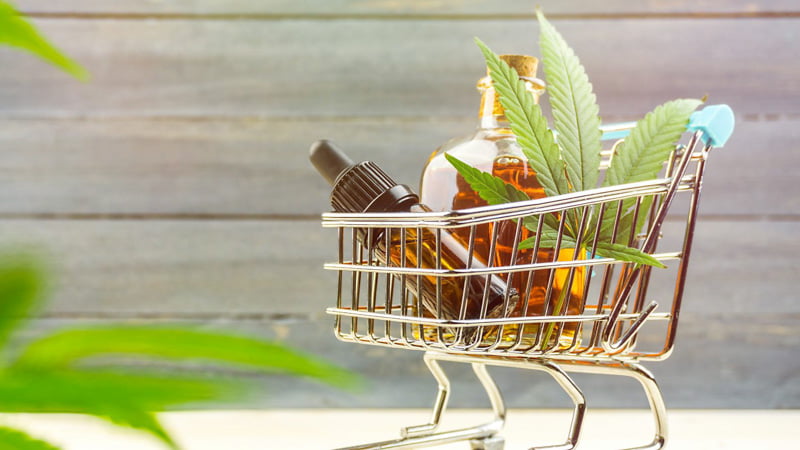 Once you decide to try delta 8 THC, there’s one last thing to remember before buying any delta 8 product.
Once you decide to try delta 8 THC, there’s one last thing to remember before buying any delta 8 product.
Not all delta 8 THC extracts are made equally.
The quality of delta 8 THC — and whether it doesn’t contain more than 0.3% of delta 9 THC — depends on the farmer, the extractor, and third-party testing.
Getting your delta 8 THC from a reputable manufacturer that tests its products for delta 8 content and purity will help you avoid sketchy companies and poorly made decisions.
The best delta 8 THC products are made from organic hemp, where CBD is made into distillate and converted into delta 8 THC. Organic hemp plants contain high CBD levels and are free of contaminants like heavy metals, pesticides, and other toxic compounds.
At Area 52, we source delta 8 THC from local farms in Colorado and Kentucky, ensuring the top quality of our base material.
Since the market is unregulated, the only way to prove that you’re buying a safe and tested product is through a certificate of analysis from a third-party laboratory.
A laboratory is considered a ‘third-party’ if it has no affiliation with the manufacturer. For example, we send each batch of our delta 8 THC liquid to an independent laboratory for content analysis; you can access the batch-specific certificate of analysis on our website.
Summarizing the Differences Between Hemp vs. Marijuana
Let’s summarize the differences between hemp and marijuana:
- Both hemp and marijuana are the same species of plant: Cannabis sativa
- Hemp is high in CBD and low in THC (0.3% or less); it won’t get you high
- Marijuana is high in THC and may have varying concentrations of CBD depending on the strain; it can get you high
- Delta 8 THC can be sourced from both hemp and marijuana
- Hemp-derived delta 8 THC is legal on a federal level; marijuana-derived delta 8 THC is not
- The legal status of marijuana varies by state. However, on a federal level, it’s still a prohibited substance
- Delta 8 THC is the same compound regardless of the source. However, the source affects its legality
- The legal definition of cannabis depends on its THC content: industrial hemp with less than 0.3% THC is considered federally legal, and anything more than that is marijuana
We hope that our guide has helped you understand the intricate difference between hemp and marijuana.
If you have more questions about the differences between hemp vs. marijuana, feel free to post them below in the comments — we’ll be happy to answer!
Frequently Asked Questions
1. Are marijuana and hemp the same thing?
Not exactly, though they’re closely related. Both marijuana and hemp come from the cannabis plant, but the key difference is their THC content. Marijuana has higher THC levels, causing that familiar high, while hemp contains very little THC—usually not enough to get you intoxicated. For legal purposes though, industrial hemp should contain no more than 0.3% THC for it to be legal. Anything more than than is considered illegal.
2. Will hemp show up on a drug test?
Usually not. Hemp itself has very low THC levels, so eating hemp foods (like hemp seeds or granola) or using hemp-based lotions or shampoos won’t typically make you fail a drug test. But just to be safe, stick to reputable brands that clearly state their THC content, since trace amounts could sometimes show up if the product isn’t properly tested.
3, Is delta-8 a hemp?
Delta-8 is a cannabinoid naturally present in tiny amounts in hemp, but most delta-8 products you see aren’t directly extracted from hemp plants. Instead, delta-8 is typically created by chemically converting hemp-derived CBD. So, while delta-8 originally comes from hemp, it’s usually processed in labs to achieve higher concentrations.
4. How does hemp make you feel?
Hemp-derived CBD generally gives a calm, relaxed feeling without the intoxicating effects you’d get from THC. It might ease anxiety, reduce pain, or help you unwind, but it won’t give you a noticeable “high.” Just keep an eye on labels—some hemp products have small amounts of THC that could produce mild psychoactive effects.
5. What is hemp used for medically?
Hemp CBD is used medically to relieve symptoms like chronic pain, anxiety, inflammation, and sleep troubles. Some people also use it to support heart health or digestive wellness. While research is ongoing, hemp-based CBD products have already become popular for a variety of therapeutic uses.
